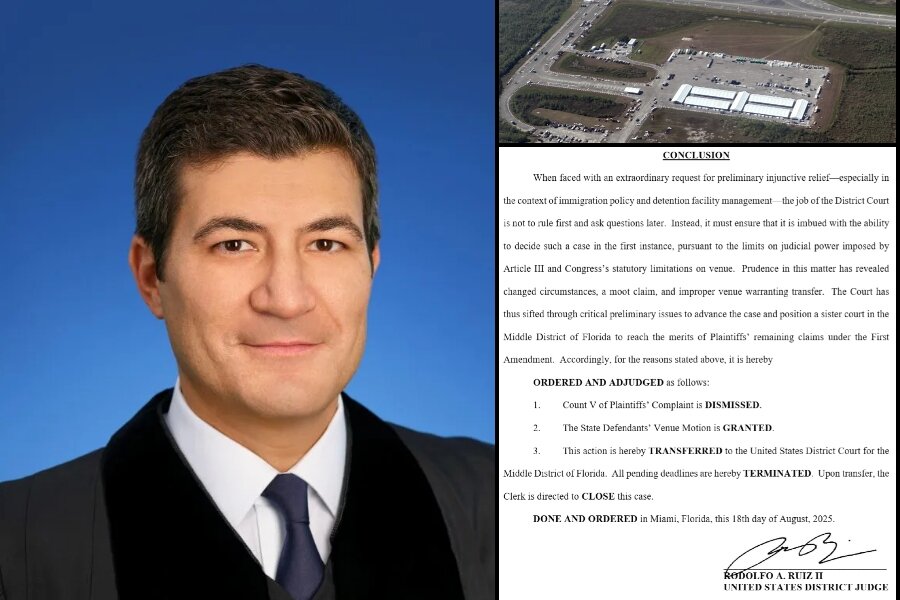A federal judge issued a split ruling in a lawsuit challenging the “Alligator Alcatraz” immigration detention center in the Florida Everglades, dismissing part of the case while sending the remainder to another court.
U.S. District Judge Rodolfo Ruiz in Miami ruled on Aug. 18 that detainees’ claims they lacked access to immigration courts were now moot after the Trump administration designated the Krome North Processing Center near Miami to hear their cases.
“After numerous hearings, affidavits, status conferences, and supplemental filings, it has become readily apparent that Plaintiff’s Complaint suffers from two key flaws. For one, Plaintiff’s Fifth Amendment claim has been rendered moot,” Ruiz wrote in a 47-page order, adding that the lawsuit’s “tortured procedural history” had shifted with each filing.
The judge also found the alleged violations did not arise in the Southern District of Florida. “Venue matters,” he wrote, transferring the surviving claims to the Middle District of Florida, where the detention center is located.
Civil rights groups, led by the American Civil Liberties Union, had sought a preliminary injunction to ensure detainees could meet privately with lawyers and challenge their detention.
“Defendants currently hold approximately 700 immigrant detainees at the facility, and have barred detained immigrants from communicating confidentially with legal counsel,” their motion stated, asking the court to require private, unmonitored calls and stop officials from reading legal papers.
The suit also alleged that detainees were pressured to sign voluntary deportation orders without legal advice.
“One intellectually disabled detainee was told to sign a paper in exchange for a blanket, but was then deported subject to voluntary removal after he signed, without the ability to speak to his counsel,” the plaintiffs’ reply in support of their injunction request stated.
Government lawyers countered that the facility—still under construction on a remote airfield—had been updated to allow attorney meetings and that documents were only screened for contraband.
One attorney argued that the plaintiffs’ claims were really an effort to close the site, saying they were trying to “fragment, to prolong, [and] to block” deportation efforts.
Ruiz agreed that the First Amendment claims “are very much alive,” but ruled they should be litigated in the Middle District.
Share your thoughts by scrolling down to leave a comment.













